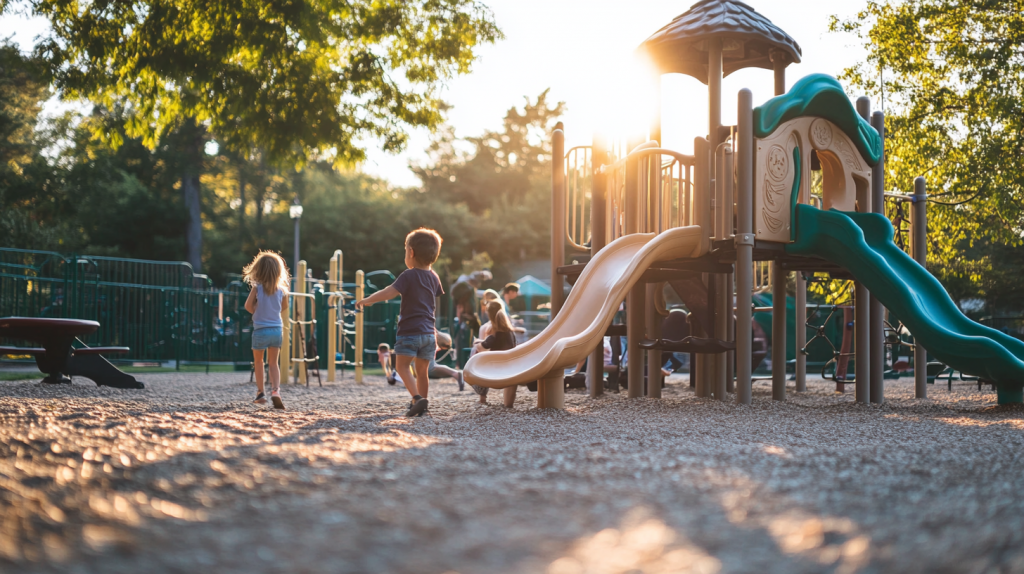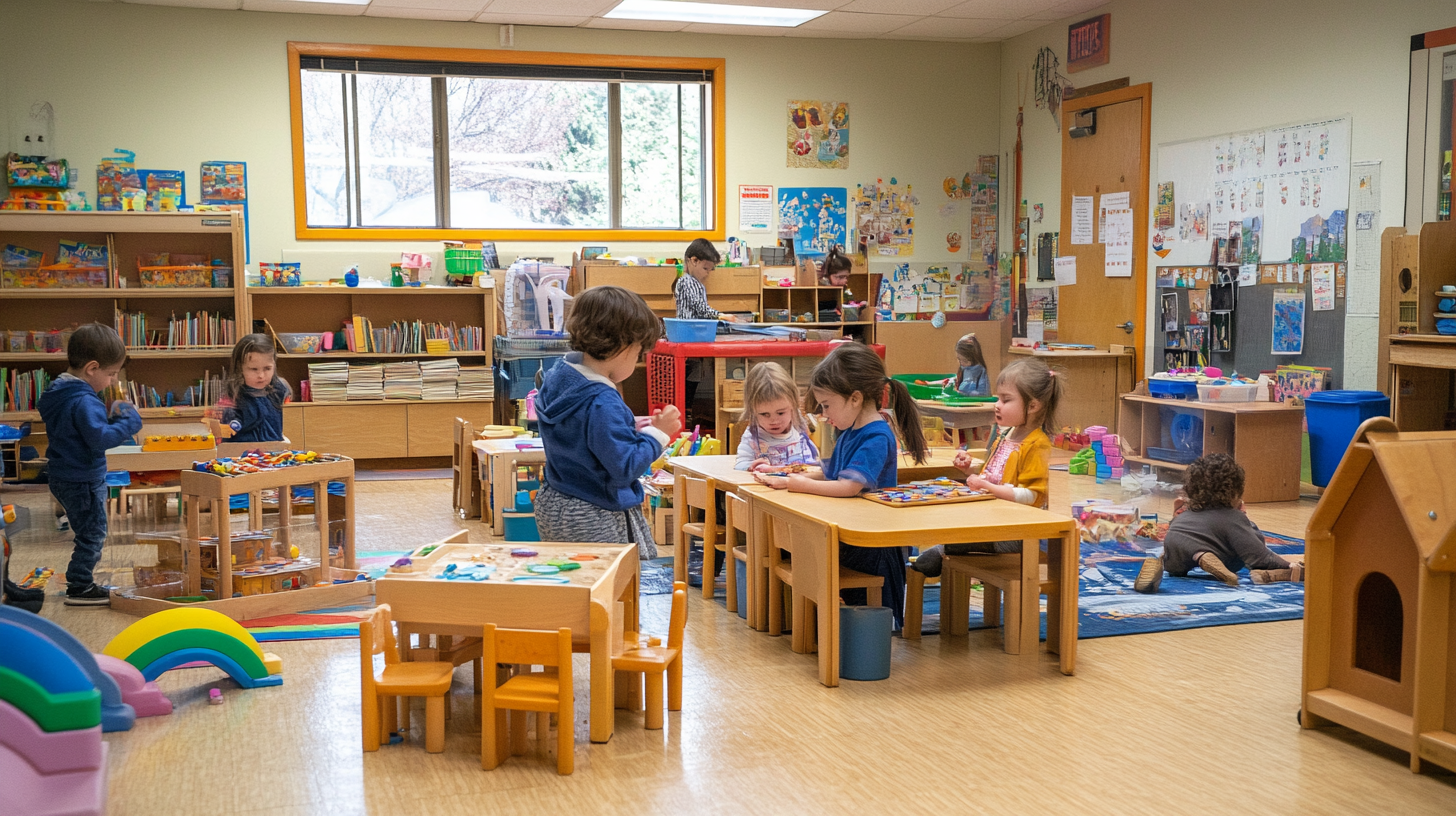In today’s fast-paced world, the importance of early childhood development is more recognized than ever. Among the various factors contributing to a child’s growth, peer interaction stands out as a cornerstone. Daycare settings provide a unique environment where children can develop friendships and enhance their personal development. Understanding the role of these interactions can help parents and educators foster a supportive space for children to grow.
The Importance of Personal Development in Early Childhood
Personal development in early childhood is crucial as it lays the foundation for future success. It encompasses various aspects such as emotional intelligence, communication skills, and the ability to form relationships. At daycare, children engage in activities that promote these skills, setting the stage for lifelong learning.
Emotional Intelligence
Emotional intelligence refers to the ability to recognize, understand, and manage one’s own emotions and those of others. At daycare, children encounter situations that allow them to practice empathy, patience, and cooperation. These experiences are vital for personal growth, as they help children navigate social environments both in and out of the classroom.
Communication Skills
Daycare is a hub for language development. Through peer interaction, children learn to express themselves more clearly and listen actively. Whether it’s negotiating turns on the playground or sharing stories during circle time, these interactions are instrumental in honing communication skills.

Friendships at Daycare: Building Blocks of Social Skills
Friendships formed at daycare are more than just playtime companions; they are essential for developing social skills. These early relationships teach children how to interact with others, resolve conflicts, and build a sense of belonging.
Learning Through Play
Play is the primary method through which children explore the world and learn social norms. In daycare, children engage in both structured and unstructured play, which allows them to practice sharing, taking turns, and working collaboratively. These activities help children understand the importance of cooperation and teamwork.
Conflict Resolution
Conflicts are inevitable in any group setting, and daycare is no exception. However, these moments are valuable learning opportunities. Through guided interactions, children learn to express their feelings, listen to others’ perspectives, and find solutions. These skills are crucial for personal development and future social interactions.
The Role of Educators in Facilitating Peer Interaction
Educators play a pivotal role in fostering an environment conducive to building friendships and personal development. Their guidance helps children navigate social dynamics and encourages positive interactions.
Creating a Supportive Environment
A supportive environment is essential for children to feel safe and confident in expressing themselves. Educators can create such an environment by setting clear expectations, modeling respectful behavior, and providing opportunities for children to interact in various group settings.
Encouraging Inclusivity
Inclusivity is key to ensuring all children feel valued and accepted. Educators can encourage inclusivity by promoting diverse activities that cater to different interests and abilities. This approach helps children appreciate diversity and develop empathy towards others.

How Parents Can Support Social Skills Development
Parents also play a crucial role in nurturing their child’s social skills outside of daycare. By reinforcing positive behaviors and providing opportunities for social interaction, parents can complement the efforts made in daycare settings.
Reinforcing Positive Behaviors
Parents can reinforce positive social behaviors by acknowledging and praising their child’s efforts to interact kindly with others. This positive reinforcement encourages children to continue practicing these behaviors.
Providing Opportunities for Interaction
Organizing playdates or enrolling children in extracurricular activities can provide additional opportunities for social interaction. These experiences allow children to practice their social skills in different settings and with diverse groups of peers.
The Long-term Benefits of Strong Social Skills
Developing social skills at an early age has long-lasting benefits. Children who build friendships and learn to navigate social interactions effectively tend to be more confident and successful in various aspects of life.
Academic Success
Social skills are closely linked to academic success. Children who can work well with others and communicate effectively are more likely to thrive in collaborative learning environments. These skills also contribute to a positive attitude towards school and learning.
Emotional Well-being
Strong social skills contribute to emotional well-being by helping children build supportive relationships and a sense of belonging. These connections can provide a buffer against stress and contribute to overall happiness and resilience.
Conclusion
Building friendships at daycare is a fundamental aspect of personal development. Through peer interaction, children learn essential social skills that pave the way for future success. By understanding the role of these interactions and supporting them both at daycare and at home, parents and educators can help children thrive in their early years and beyond.
The journey of personal development through friendships at daycare is a collaborative effort that requires the involvement of caregivers, educators, and parents alike. By fostering a nurturing environment, we can ensure that children develop the social skills necessary for a fulfilling and successful life.
Contact Discovery Time Learning Center
Are you ready to support your child’s social development and personal growth? At Discovery Time Learning Center, we provide a nurturing environment where children can build friendships and enhance their social skills through engaging activities.
Get in touch with us today to learn more about our programs and how we can help your child thrive! Let’s work together to create a bright future for your child!



